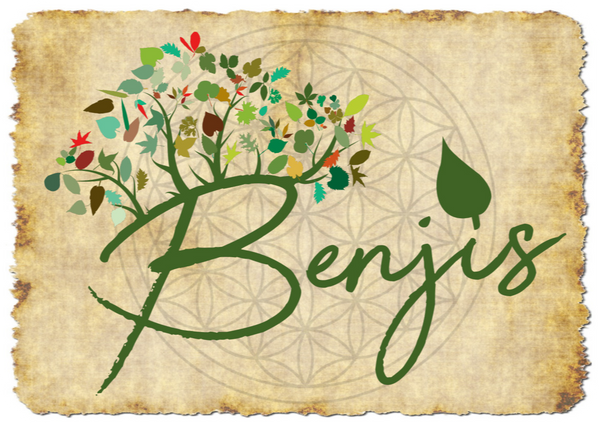Benjis seeds
Evening Primrose [Oenothera biennis]
Evening Primrose [Oenothera biennis]
Couldn't load pickup availability
Tips to reduce water requirements
Tips to reduce water requirements
We recommend mulching the beds
Experience has shown that by covering the ground, e.g. with Hay or straw, which can reduce evaporation by 80%. If you keep the beds evenly moist, an optimal moist microclimate will be created under the mulch. This not only promotes the growth of the plants, but also reduces water consumption enormously.
It is also recommended to always keep the beds moist , even if the bed is not used for a certain period of time
The drying out of the soil leads to a huge decline in the micro- and macro-organisms in the soil, which over time leads to an infertile soil . Tests have shown that the water content in the entire bed remains longer when the entire bed is watered over a longer period of time than when it is only watered selectively. Due to the small volume of the poured areas in contrast to the large dry volume, they dry out more quickly than if the entire volume of the bed is filled with moisture. Similar to heating in an apartment.
If the beds are not in use, we recommend sowing with green manure.
Maintaining an energy level always requires less energy than having to reach it again and again.
Shipping and pick-up information
Shipping and pick-up information
Shipping
We offer CTT shipping for Saagut Europe and USA far! With us you will always receive a tracking number to track your package. Shipping costs differ depending on the shipping region. Here is a list of regions and prices:
National Shipping
Portugal (with the Azores and Madeira Islands)
Envelope or package up to 500g = € 3.50
2 kg Bus Package = 8 €
Package over 2 kg = 16 €
Europe Shipping
Envelope up to 100g = 7 €
500g Bus Package = 9,50 €
1kg Bus Package = 14 €
2kg Bus Package = 20 €
Package over 2kg = 40 €
USA Shipping
Envelope up to 100g = € 7.50
500g Bus Package = 15,50 €
1 kg Bus Package = 24 €
2 kg Bus Package = 33,50 €
Package over 2 kg = 67 €
After you have completed your order with payment, you will receive a shipping confirmation email with your tracking number.
Abholung
You can pick up your order at any time from 12 noon to 8 pm or by appointment with us on site or at the markets we visit.
Simply enter the desired market to pick up in the comment box in the shopping cart.
You can find the markets in the menu on our website or at this link: https://www.benjis.net/pages/market-dates
Evening primrose is a biennial, diverse medicinal plant native to North America that has been used in Central Europe since the 17th century. In the wild, it prefers to be found in sunny ruderal areas, roadsides and gravelly or gravelly surfaces such as stream banks and railway tracks. The unique plant develops long inflorescences from a large rosette of leaves with flowers that open at sunset and bloom until the next midday. Because it blooms for a long time, this versatile species is an important source of nutrition for insects. All parts of the plant are edible. The strong, starchy and fleshy roots have a spicy aroma and can be prepared like salsify or used grated in salads. The taste of the roots is reminiscent of horseradish and celery. The high-quality and well-known healing evening primrose oil is made from the seeds, which is used for skin diseases such as neurodermatitis, menstrual pain, rheumatic complaints, arthritis or as an additive and active ingredient in cosmetic creams.
General information
Plant family: Onagraceae
Life cycle: Biennial
Days to harvest: 100 days
Plant height approx.: 100 cm
Root type: Deep rooter
Nutrient requirements: Weak eater
Water requirements: Low
Winter hardiness: Up to -34 °C
Location: Sunny
Soil: Permeable, dry, loamy, gravelly, sandy, humus
pH value: 6.5 to 7.5
Sowing and planting information
Germ type: Light germinator
Sowing depth: 0 cm
Optimal germination temperature: 16-20 °C
Germination time: 14-21 days
Plant and row spacing: 25x25 cm
Optimal mixed culture:
Unfavorable mixed culture:
Subtropic climate (Mediterranean) (e. g. B. Portugal, Spain, Italy)
Sow directly outdoors from March to May or pre-cultivate in small pots from March to June.
Moderate climate (e. g. B. Germany, Switzerland, Poland)
Sow directly outdoors from April to May or pre-cultivate in small pots from March to May.
General
Sow directly in rows. When pre-cultivating, sow the seeds in small pots and let the seedlings grow to the first visible evening primrose leaves. Then plant the pregrown plants from the pots directly into the open field. The seedlings are planted in the bed from the 2nd pair of leaves after the cotyledons.
Evening primrose prefers a sunny location with a permeable, humus-rich, gravelly and sandy loam soil. The plants grow on almost all soils. Prepare the soil with seasoned animal manure. Avoid waterlogging.
Additional tips
Sows itself abundantly. Later sowing is also possible. In order to quickly obtain a fine, crumbly and permeable soil, we recommend additional incorporation of biochar and primary rock powder.
Type of propagation
It spreads via seeds.
Plant care
To prevent self-sowing, cut off the spent inflorescences. Regular watering causes faster growth. Beds prepared with animal manure and planting in mixed culture replace additional fertilizer.
Germination ability of seeds: 70 years
Other Names
Botanical names: Oenothera biennis
English names: Evening Primrose
German names: Nachtkerze, Rapontika, Nachtblume, Abendblume, Eierblume, Schinkenkraut, Schinkenwurz, Stolzer Heinrich, Hustenblume, Süßwurzel, Gelbe Rapunzel
Portuguese names: Onagra
Spanish names: Onagra
French names: Onagre
- Made in harmony with nature
- All seeds and seedlings are genetically stable for further propagation
- Our seeds are always checked for germination at regular intervals
Share
![Evening Primrose [Oenothera biennis]](http://www.benjis.net/cdn/shop/files/Nachtkerze-EveningPrimrose-Onagra-Oenotherabiennis-www.benjis.net.jpg?v=1710418623&width=1445)



